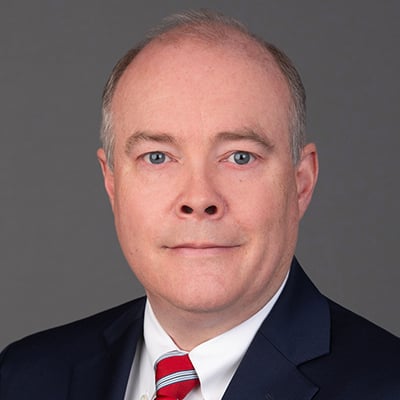Litigators of the Week: John O’Quinn and Steven Cherny of Kirkland & Ellis
W.L. Gore & Associates Inc. never let up in trying to overturn a patent infringement judgment worth nearly $2 billion to competing vascular graft maker C.R. Bard Inc. But despite multiple appeals by Gore, including en banc petitions and two attempts to bring the case to the U.S. Supreme Court, Bard’s lawyers at Kirkland & Ellis, led by John O’Quinn and Steven Cherny, can finally claim a final victory.
The Kirkland team’s efforts culminated on Monday, when the Supreme Court declined to take up Gore’s latest petition for certiorari. The high court’s decision caps a decades-long dispute over the ownership of an artificial blood vessel that helped to transform vascular surgery.
The dispute’s rich history has been well documented, including in a 2009 cover story in The American Lawyer. It once prompted a federal trial court judge in Arizona to describe the case as the most complicated she had ever presided over.
It all boiled down to whether a cardiac surgeon named David Goldfarb was the rightful inventor of a patent on a type of tubing used for vascular grafts. But as it progressed, the litigation came to encompass broader issues concerning the standard for finding willful patent infringement, among other tangled legal questions.
Goldfarb, who first applied for the patent in 1974, had agreed in 1980 to license his then-pending patent rights to Bard. When the patent eventually issued in 2002, following a lengthy battle at the U.S. Patent and Trademark Office, Bard demanded that Gore take a license, since it had been selling a competing vascular product. The licensing negotiations broke down, prompting Bard to sue in 2003.
Cherny—a patent trial lawyer—became involved shortly afterward. Alongside Latham & Watkins partner Maximilian Grant, Cherny initially led the case at the trial court, securing an infringement verdict from an Arizona federal jury in 2007. In 2009, the team convinced then-U.S. District Judge Mary Murguia that Gore had willfully infringed Bard’s vascular graft patent. That prompted Murguia, who now sits on the U.S. Court of Appeals for the Ninth Circuit, to award damages and order Gore to pay future royalties.
All told, through the 2019 expiration date of Bard’s patent, the judgment could result in Gore shelling out nearly $2 billion—likely the largest patent infringement judgment to remain intact on appeal.
“In terms of actually winning and being awarded judgment, I think we’re the number one,” Cherny told us on Thursday.
Following Murguia’s ruling, Gore fought tooth-and-nail to try to undercut the judgment. Kirkland, on the other hand, has taken pains to keep it in place.
O’Quinn, who focuses much his practice on appellate work, joined Cherny post-trial to help Bard contest Gore’s series of appeals to the U.S. Court of Appeals for the Federal Circuit, including the latest, which marked
Gore’s third Federal Circuit appeal. (Our coverage of the earlier appeals can be found here, here and here. Latham’s Grant ultimately left the case and wasn’t involved in the latest appeal.)
While both O’Quinn and Cherny worked closely on the most recent appeal, Kirkland of counsel Michael McConnell, who also directs Stanford Law School’s Constitutional Law Center, handled the arguments at the Federal Circuit. The court sided with Bard in January, but Gore continued to pursue its appellate efforts, lodging a Supreme Court petition—its second in the course of the litigation—in July.
Gore’s lawyers at Faegre Baker Daniels pushed the high court to review whether the Patent Act requires an assignment of exclusive patent licensing rights to be made in writing. The Faegre Baker team, led by partner James Poradek, argued that the justices should overrule entrenched Federal Circuit precedent that held those sorts of licenses don’t need to be granted in writing. (Poradek didn’t respond to a request for comment on Thursday.)
O’Quinn spearheaded Bard’s opposition to the high court petition, giving a nod in the Aug. 25 filing to the case’s long procedural history. He argued that the question Gore raised in its petition wasn’t something it had brought up before in any of its prior appeals.
“Gore never argued that a writing was required for an exclusive license. Not in its first appeal. Not in its second appeal. And not in either of its two petitions for rehearing en banc or in its previous unsuccessful certiorari petition,” O’Quinn wrote.
The Supreme Court rejected Gore’s petition on Monday, bringing the case to a likely close after decades of legal wrangling.
O’Quinn, who was born the very same year Goldfarb applied for his patent back in 1974, told us that the case was once of the most challenging of his career.
“To be involved in a matter that’s as old as you are is somewhat sobering,” he said.
Cherny’s run on the case, meanwhile, spanned nearly a dozen years and two lateral law firm changes—first to Latham from the now-defunct IP boutique Fish & Neave, then from Latham to Kirkland.
Cherny told us he never expected the assignment to last as long as it did.
“I’ve been living this now for 12 years,” said Cherny, who recently turned 50. “What it makes me feel is old.”
REPRINTED WITH PERMISSION FROM THE OCTOBER 8, 2015 EDITION OF THE AM LAW DAILY © 2015 ALM MEDIA INC. ALL RIGHTS RESERVED. FURTHER DUPLICATION WITHOUT PERMISSION IS PROHIBITED


